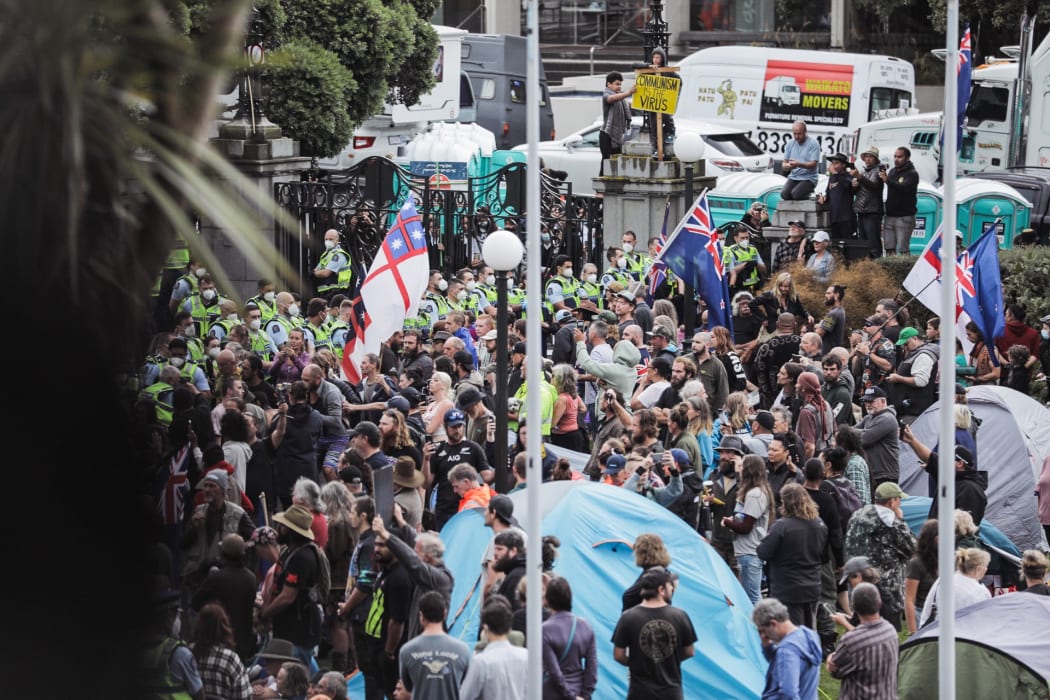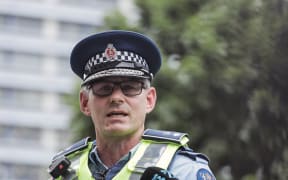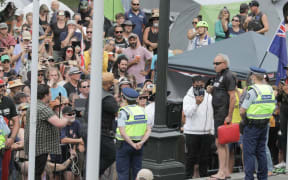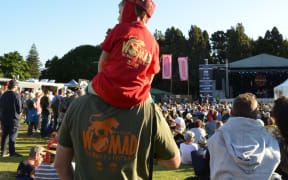A protest on Parliament grounds, which has entered its third day with campers staying overnight, is at risk of becoming a Covid-19 superspreader event, says an epidemiologist.

A protest on Parliament grounds has stretched into a third day. Photo: RNZ / Samuel Rillstone
The group is protesting against Covid-19 measures, including vaccine mandates, but have been asked to move by police.
Under the Covid-19 red traffic light setting, gatherings of up 100 are allowed with vaccine passes, and 25 for those without vaccine passes. Footage from the scene appears to show dozens of people at the site.
University of Otago professor of public health Michael Baker told Morning Report this event had the potential to increase transmission of the virus, with protesters travelling from around the country and probably mixing with others outside their family group.

Epidemiologist Michael Baker. Photo:
"That's really the definition of a super spreading event and we know that's how this virus gets around the world. We've seen that already in New Zealand with the Soundsplash Festival in Hamilton. We've seen it a lot internationally at big gatherings," professor Baker said.
"Even though it's mainly outdoors, there will be a lot of indoor gatherings associated with it, you know, shared transport and accommodation, meals, the shouting and singing, which we know generates these aerosols," he said.
"But the big extra problem here, of course, is that these groups, almost by definition, have low vaccine coverage low mask use. And they're probably less likely to present for testing and self isolate if they're sick. So all of those are really increasing the risks for this event."
Deputy Prime Minister Grant Robertson told First Up while people had a right to protest, this group had trespassed on the grounds and were blocking the road. He said police made their own operational decisions, but he was "urging them to enforce the law".
Baker agreed that they had a right to protest but "at a certain point, you have made your point after a day or two".
"So then I think some of the risks start to compound at that point."
Asked if action would be justified on health grounds, Baker said: "I mean, it's a risk to the people attending, it's a risk to people who might inadvertently wind up mixing with these people at local venues and so on. So I think that is a real problem for our control of this pandemic in Wellington at the moment."
Arrests have been made at the site today, and three people were charged with obstruction yesterday.
Baker said there was still a case to be made for vaccine mandates, although they may slowly drop over time.
"There are a few issues of course. Full vaccinations will need to include boosting, we know with Omicron that's essential, so even the traffic light system and the vaccine passes do need attention.
"But the other thing is when people talk about vaccine mandates, there's two very different kinds of mandates. One is about occupational settings. And this is a question of if you're being treated by a health care worker, do you expect that they're vaccinated, for example?
"The other is related settings and if you think about international air travel and so on, that's going to have a mandate for vaccination, maybe indefinitely with this virus, maybe for years. So it isn't really possible to talk about the end of vaccine mandates as a whole - it'll be by degrees. And I think certainly some of them can be removed in the future, so may be with us for many years."






